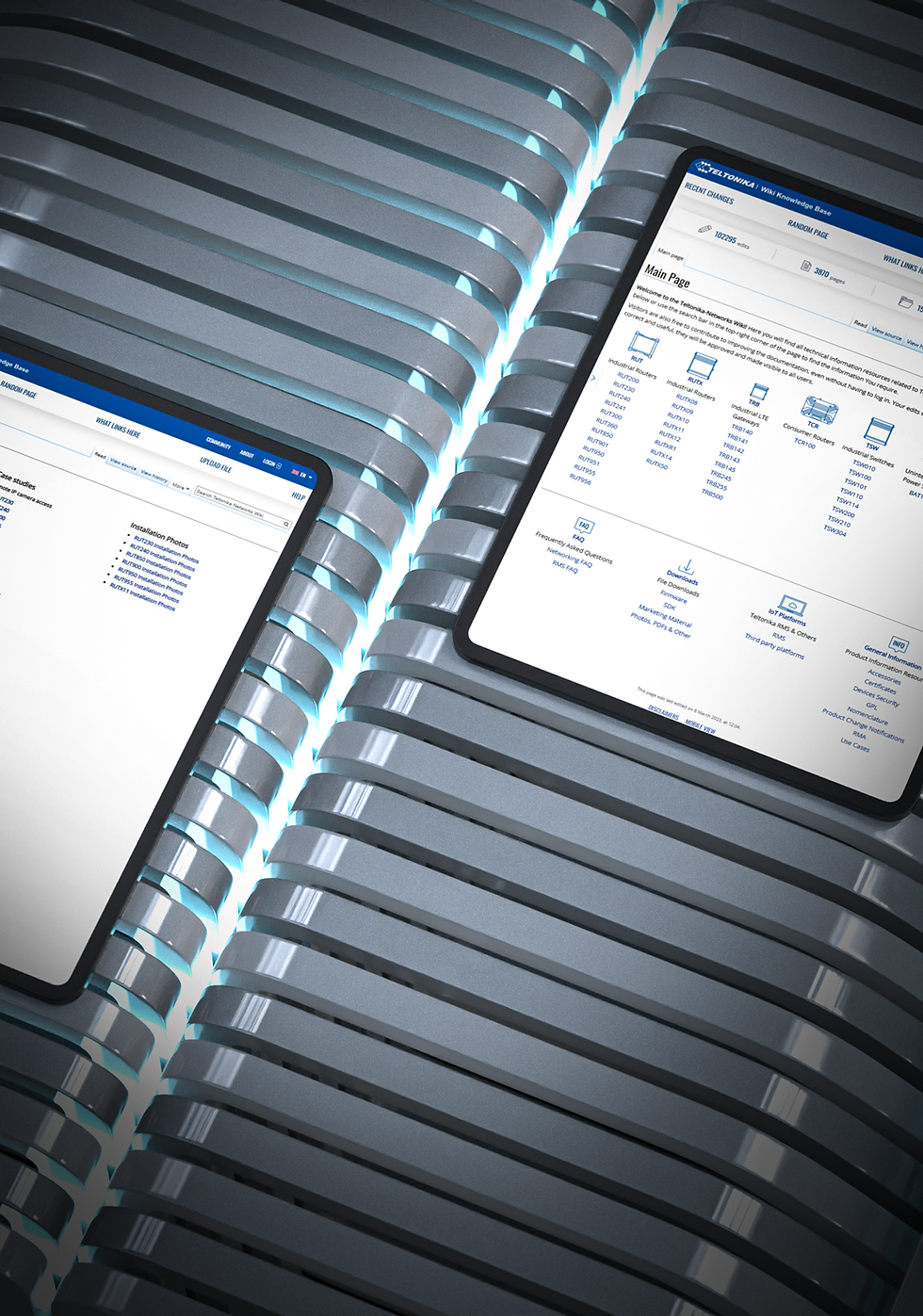top of page
TRB255
INDUSTRIAL M2M GATEWAY
End of ordering:
2024 вересня 13
End of production:
2025 березня 13
End of support:
2030 червня 13
CONNECTIVITY
4G/LTE (Cat M1), NB-IoT, 2G
DUAL SIM
With auto failover, backup WAN and other switching scenarios
SERIAL PORTS
RS232/RS485 serial communication interfaces
I/O
Multiple Inputs and Outputs for remote monitoring and control
3D MODEL

ГАЛЕРЕЯ ПРОДУКЦІЇ

ВСТУПНЕ ВІДЕО
qsg video



БІЛЬШЕ ФОТО
features
завантаження
ordering
support
Характеристики
Сертифікати
завантаження
ЗАМОВЛЕННЯ
ПІДТРИМКА
заголовок
Spec title
Spec text
Spec title
Spec text
заголовок
Spec title
Spec text
Spec title
Spec text
See how Teltonika Networks products empower IoT solutions across multiple industries!
.png)


.png)
База знань
WIKI
У нашій обширній базі знань Wiki ви можете знайти все: від найновішої мікропрограми, сценаріїв використання та журналів змін до сертифікатів і посібників для першого запуску.
compatible ACCESSORIES
bottom of page







